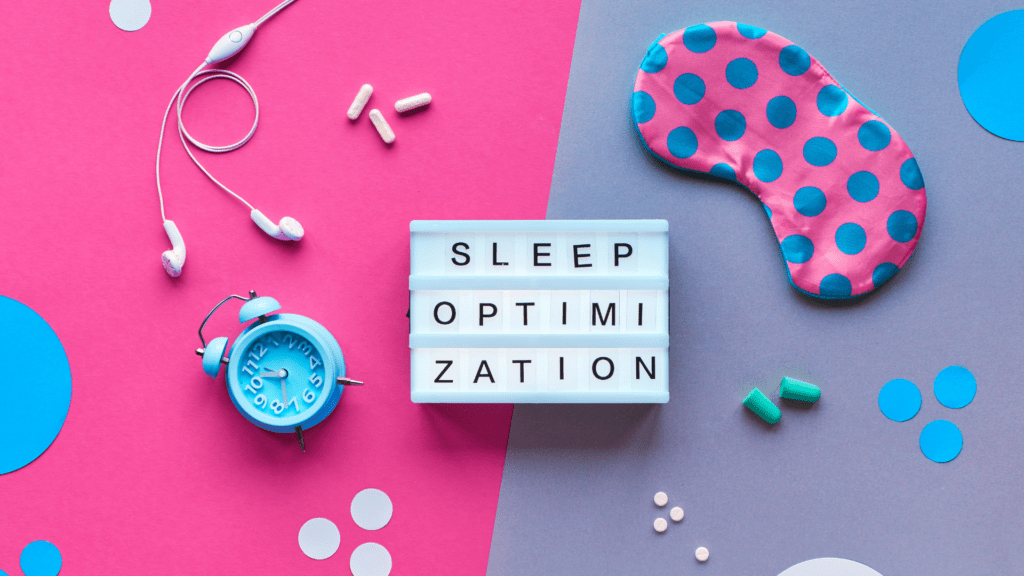Let’s get this straight—just going to bed and waking up at the same time every day isn’t always enough to ensure a great night’s sleep. Many people believe that they’re set for the day as long as they get their eight hours. But the reality? It’s all about the quality of sleep, and that’s where a sleep calculator can make a huge difference. Sleep isn’t just about hours; it’s about aligning with your sleep cycles and using the right sleep calculator can help you figure out when to sleep and wake up to feel truly refreshed.

What Is a Sleep Calculator?
A sleep calculator is a tool that takes the guesswork out of sleep by helping you calculate the perfect time to go to bed and wake up. It’s not just about counting hours; it’s about syncing your sleep with your body’s natural rhythms, like the REM sleep cycle. When you use tools like the REM cycle calculator or a 90-minute sleep cycle calculator, you work with your body’s natural sleep patterns rather than fighting them.
Think of a sleep calculator as your guide to better rest. Whether you’re using a bedtime calculator or a sleep schedule calculator, these tools consider how long it takes to go through the different sleep stages, including light sleep, deep sleep, and the all-important REM sleep. Adjusting your bedtime and wake-up time based on these cycles makes you more likely to wake up feeling energized instead of groggy.
Why Knowing Your Sleep Cycle Matters
Here’s where things get interesting. Your body goes through several sleep cycles throughout the night, usually lasting around 90 minutes each. That’s why tools like the 90-minute sleep cycle calculator are so effective—they help you calculate the ideal bedtime so you wake up at the end of a cycle, not in the middle of one. Waking up mid-cycle, especially during deep sleep or REM sleep, is what often leaves you feeling like you haven’t slept at all.
Understanding your sleep cycle can change the way you sleep and feel. Instead of just counting down the hours until your alarm goes off, you’ll start to think in cycles. Using a REM sleep calculator can help you time your sleep more efficiently, ensuring you wake up at the optimal point. This can also improve your circadian rhythm, the body’s internal clock that regulates sleep and wakefulness.
Whether you’re dealing with a traditional schedule or something less predictable, like night shifts, aligning your rest with your natural sleep cycles is key. And this is exactly where sleep calculators excel.
How to Use a Sleep Calculator to Improve Your Sleep
Okay, so now you know what a sleep calculator does, but how do you use one to improve your sleep? It’s pretty straightforward. Let’s break it down.

Understanding Your Sleep Needs
The first step is knowing how much sleep you need based on your age and lifestyle. For example, adults typically need around 7-9 hours of sleep, while teenagers might need a bit more. This is where a sleep calculator by age comes in handy. It helps you figure out how many hours of sleep you should be aiming for each night.
A sleep time calculator can also help you figure out how many hours you’ve slept and how much rest you need. If you’re someone who frequently asks, “How much sleep do I need?” or “How many hours of sleep did I get last night?” these tools can give you a clear answer. They’ll help you track your sleep and ensure you’re not skimping on the hours you need to stay healthy.
Let’s say you have a busy schedule, and you’ve only got a window of time to sleep. A sleep estimator can calculate how much sleep you’ll get if you go to bed at a certain time, which makes planning around tight schedules much easier. If you’re calculating sleep for night shifts, a night shift sleep schedule calculator can be especially helpful in ensuring you get proper rest during unconventional hours.
The Role of a Bedtime Calculator in Perfecting Sleep
Here’s where things get practical. A bedtime calculator is your go-to tool when you want to determine the best time to go to bed and wake up. You simply input the time you need to wake up, and it calculates the best times to fall asleep based on your 90-minute sleep cycles. This way, you wake up at the end of a cycle, not in the middle of REM sleep or deep sleep. Trust me, this makes a big difference in how you feel when you wake up.
For example, if you want to wake up at 6:30 AM, a bedtime calculator might suggest that you go to bed at either 10:00 PM or 11:30 PM, depending on how many sleep cycles you want to complete. It ensures you wake up during your lightest phase of sleep, which leads to feeling more alert and well-rested.
If you’ve ever wondered, “What time should I go to bed to wake up refreshed?”, this is where the wake-up calculator can give you the answer. And if you’re someone who likes to nap but struggles with oversleeping a nap calculator can help you time short naps that don’t leave you feeling groggy.
Sleep Cycles Are Not All About the 90-Minute Rule
A common myth floating around is that all sleep cycles last exactly 90 minutes and that you can time your entire night’s sleep based solely on this rule. But here’s the truth—sleep cycles vary from person to person, and while the 90-minute sleep cycle is a useful average, it’s not the whole picture. That’s where a more customized sleep calculator comes in. It helps you calculate your sleep based on your unique needs, not just a one-size-fits-all approach.
Sleep Cycle Stages: Understanding the Breakdown
Let’s break down the sleep cycle stages so you can better understand what’s happening while you sleep. A full sleep cycle consists of four stages: light sleep (stages 1 and 2), deep sleep (stage 3), and REM sleep. These stages aren’t just random—they have specific purposes for your body and mind. Light sleep helps you transition into deeper stages, deep sleep is crucial for physical restoration, and REM sleep supports memory and emotional health.

To make the most out of each stage, focus on sleep hygiene: simple tips like maintaining a consistent sleep schedule, creating a relaxing bedtime routine, and optimizing your sleep environment can enhance your sleep quality significantly. By aligning these practices with a clear understanding of your sleep cycle, you can improve both the duration and effectiveness of your rest.
Stage 1: Light Sleep
The first stage of sleep is when you’re drifting off. You’re still partially awake, and your body is just starting to relax. Think of this as the transition phase. It’s light and short—lasting only a few minutes. A sleep time calculator considers this stage as the beginning of your cycle, where your brain activity starts to slow down but you’re still easily awakened.
Stage 2: Deeper Light Sleep
In the second stage, your body temperature drops, and your heart rate slows down. This is still light sleep, but it’s a bit deeper than stage 1. You’re not quite dreaming yet, but your body is preparing to enter the next stages of the sleep cycle. This is where a sleep estimator will measure how well you’re progressing toward deeper sleep.
Stage 3: Deep Sleep
This is the stage where your body does most of its repair work. Deep sleep is critical for muscle recovery, immune function, and overall health. If you don’t get enough of this stage, you’ll likely feel groggy and worn out the next day, no matter how long you slept. This is why a sleep calculator helps ensure that you’re completing these cycles.
REM Sleep: Where Dreams Happen
REM sleep is the stage where your brain becomes more active, and you start dreaming. It’s also important for memory consolidation and mental recovery. REM sleep typically kicks in about 90 minutes after you fall asleep, but it lasts longer as the night progresses. If you use a REM sleep calculator, you can better understand when this stage occurs and how to optimize your rest.
How Much Sleep Do You Need?
One of the biggest sleep-related questions is: “How much sleep do I need?” The answer is more complex than just saying eight hours. Factors like age, lifestyle, and even genetics play a role in determining how much sleep is optimal for you. That’s why using a how much sleep Do I need calculator can give you a more personalized answer.

Age-Based Sleep Recommendations
Different age groups require different amounts of sleep. For instance, newborns need as much as 17 hours, while adults typically require 7 to 9 hours. Tools like a sleep calculator by age are particularly helpful because they factor in these variations, helping you determine your ideal sleep duration based on your current stage of life.
The Role of Lifestyle in Sleep Needs
Your lifestyle also affects how much sleep you need. If you’re physically active or mentally stressed, you might require more sleep for proper recovery. On the flip side, if you lead a more sedentary lifestyle, you may not need as much. A sleep deficit calculator is useful in tracking if you’re consistently falling short of the hours you need, helping you avoid long-term sleep debt.
Calculating Hours of Sleep
One of the great things about using a sleep time calculator is that it allows you to track how many hours of sleep you’re getting. If you find yourself asking, “How many hours did I sleep last night?” or “How much sleep will I get if I go to bed at a certain time?” these calculators can give you accurate answers. This is essential for understanding if you’re getting enough sleep or if you need to adjust your routine.
For people who work irregular hours, like those on a night shift, a night shift sleep schedule calculator can help them stay in sync with their sleep needs even if they aren’t following a traditional 9-to-5 schedule. It helps calculate sleep windows that align with their body’s natural rhythms, even when their waking hours are unconventional.
Sleep Length and Consistency Matter More Than You Think
It’s a common belief that simply getting the “right” amount of sleep is enough for a good night’s rest, but here’s the truth: it’s not just about sleep length, it’s about consistency too. Sleeping for 8 hours one night and then barely managing 5 hours the next isn’t going to do you any favors, no matter how much you make up for it later. That’s where the importance of consistency and a good sleep schedule comes into play—something you can track and optimize using a sleep calculator.
The Role of Consistency in Your Sleep Schedule
Your body thrives on routine. When you go to bed and wake up at the same time each day, you allow your internal circadian rhythm—your body’s natural sleep-wake cycle—to align more effectively. Let’s dive into why sleep consistency is so critical and how tools like a circadian rhythm calculator or a wake-up time calculator can help you maintain it.
The Body’s Internal Clock: Why Routine Is Key
Your body has its internal clock, called the circadian rhythm, that controls when you feel alert and when you feel sleepy. If you disrupt this clock by constantly changing your bedtime or wake-up time, you throw off your sleep cycle. That’s why you often feel jet-lagged after pulling an all-nighter or waking up at an unusual hour. A sleep time calculator or wake-up time calculator helps you find the best times to go to bed and wake up, making sure you stay in sync with your circadian rhythm.
Using a Bedtime Calculator to Build a Routine
One simple way to build consistency is by using a bedtime calculator. This tool takes into account your wake-up time and calculates the best time to go to bed so that you complete full sleep cycles, waking up at the right stage of sleep. Whether you’re working with a traditional 9-to-5 schedule or you’re on a night shift, a night shift sleep schedule calculator can help you stay consistent, even if your work hours are irregular.
The Impact of Sleep Consistency on Health
Regular sleep patterns are closely linked to better overall health, including improved mood, better cognitive function, and even a stronger immune system. Disrupting your sleep schedule too often can lead to a sleep deficit, something a sleep deficit calculator can help you track. If you consistently get less sleep than you need, you may find yourself in a state of sleep debt, which takes a toll on your body and mind.
Consistency is the secret ingredient in sleep quality, and it’s something that you can achieve through discipline, lifestyle adjustments, and the smart use of sleep calculators and tools designed to help you track your sleep routine.
Tailoring Your Sleep Schedule to Your Lifestyle
It’s easy to think that the same sleep schedule works for everyone, but in reality, your lifestyle plays a huge role in determining your optimal sleep schedule. Whether you’re an early riser, a night owl, or somewhere in between, your sleep needs are unique. Tailoring your schedule to fit your daily life—and your body’s natural preferences—can make a huge difference. Here’s how you can use various tools and calculators to personalize your sleep schedule.
Personalizing Your Sleep Routine with Sleep Calculators
When it comes to personalizing your sleep routine, it’s all about finding the right balance. A sleep calculator is one of the best tools for helping you achieve this, offering guidance based on your lifestyle, schedule, and individual needs.
Finding Your Optimal Time to Sleep
The key to personalizing your sleep routine is figuring out your optimal time to sleep. This varies from person to person depending on factors like work hours, personal preferences, and energy levels throughout the day. A sleep time calculator can help you pinpoint when you should go to bed and wake up to maximize your energy and mood during your waking hours.

Using a Circadian Rhythm Calculator for Better Alignment
If you’ve ever felt like your natural sleep patterns are at odds with your daily life, you’re not alone. Many people struggle to align their sleep schedules with their responsibilities. That’s where a circadian rhythm calculator comes in handy. Analyzing your habits and preferences, helps you figure out the best times for sleep and wakefulness so that your lifestyle and sleep needs can work together in harmony.
Adjusting for Special Circumstances: Night Shifts, Jet Lag, and More
If you work irregular hours, such as night shifts, or frequently travel across time zones, you’ll need to adjust your sleep routine. A night shift sleep schedule calculator or a jet lag calculator can help you stay on top of your sleep even when your schedule gets thrown off. These tools consider factors like the amount of sleep debt you’re accumulating and help you adjust your sleep patterns to ensure you’re getting enough rest.
Whether you’re a night owl or an early bird, personalizing your sleep routine with the help of a bedtime calculator, wake-up time calculator, or circadian rhythm calculator is essential for optimizing your sleep quality. Every person’s sleep needs are different, and using these tools helps ensure that you’re not only getting enough sleep but also getting it at the right times for your lifestyle.



